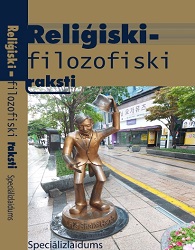Review of the Japanese Colonial Period in Korea (1910-1945) as Cultural Trauma and Part of Collective Memory Formation
Review of the Japanese Colonial Period in Korea (1910-1945) as Cultural Trauma and Part of Collective Memory Formation
Author(s): Karole MiullerSubject(s): Cultural history, Cultural Anthropology / Ethnology, Pre-WW I & WW I (1900 -1919), Interwar Period (1920 - 1939), WW II and following years (1940 - 1949), Identity of Collectives
Published by: Latvijas Universitātes Filozofijas un socioloģijas institūts
Keywords: Collective memory; Korean history; colonial trauma; cultural trauma;
Summary/Abstract: Collective memory is one of the main parts of identity that shapes a nation and has enormous influence both on the present but also on the future. Therefore, this study tries to identify and prove the importance of history (and its incidents), as well as its impact upon the formation of collective memory. Focusing on historic trauma of the Japanese colonial period in Korea (1910–1945), an attempt of conceptualizing the historic events in correlation with collective memory (Halbwachs, Assmann) in a sociocultural context and the idea of cultural trauma (C. Alexander, R. Eyerman, B. Giesen, N. J. Smelser, P. Sztompka) is made, proving that the occupation period in Korea is a collective trauma with enormous consequences for the future formation of identity and collective society in Korea. This case study of the Korean colonial period allows to prove that all occupational periods of the 20th century can be perceived as cultural trauma, which manifests itself as a cut in the continuously existing collective memory.
Journal: Religiski-filozofiski raksti
- Issue Year: 2022
- Issue No: Special
- Page Range: 117-141
- Page Count: 25
- Language: English

